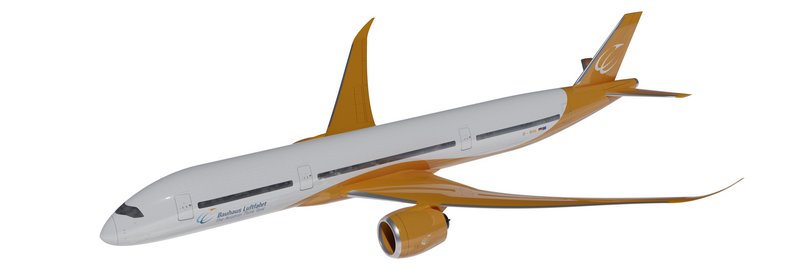The LuFo project AirTiMe (Climate Optimized Aircraft Performance & Trajectory Optimisation by Integrated Wing & Functional Driven Moveables Architectures) aims to reduce the climate impact of future generations of aircraft through the use of ultra-efficient aircraft technologies, with a particular emphasis on integrating adaptive wing technologies and advanced propulsion systems.
This project brings together leading partners, including Airbus, DLR, RWTH, TU Braunschweig and Bauhaus Luftfahrt, to collaboratively develop and evaluate advanced aircraft technologies that align with the sustainability goals of the German aviation sector. A central goal is to reduce fuel consumption and non-CO2 climate effects such as contrails. The aircraft configuration is designed to achieve maximum efficiency and flexibility with climate-optimized variable flight altitudes, for which advanced wing moveables and propulsion concepts are essential.
The development of the aircraft configuration begins with an assessment of suitable wing and propulsion technologies, followed by the definition of eco-driven top-level aircraft requirements (TLARs), supported by market and route analyses. Based on this, the overall aircraft concept is developed and the reduction of climate impact is assessed at both the mission and fleet levels. These approaches aim to help reduce the environmental burden of aviation while increasing operational flexibility.
Within the AirTiMe consortium, Bauhaus Luftfahrt is responsible for future demand analysis and conceptual long-range aircraft design. By combining market analysis of aviation demand with global climate data provided by DLR, aircraft requirements are redefined to better meet future market needs. Consequently, advanced wing and propulsion technologies are evaluated and integrated into the overall design of the long-range aircraft, whose climate effects are also assessed.

The underlying project was funded by the Federal Ministry for Economic Affairs and Climate Protection under the funding code 20A2201F.



